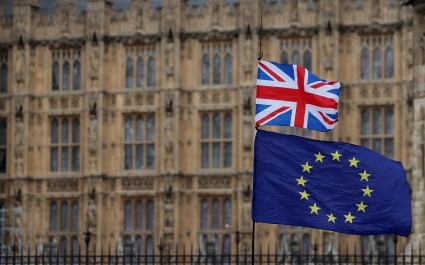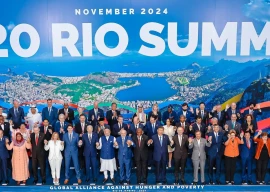
Here are some possible scenarios for the coming weeks:
Despite Wednesday's vote, this still appears the most likely outcome.
Under British law, the next election is not due until 2022 and a two-thirds parliamentary majority is required if the government want to hold a vote ahead of time.
Boris Johnson calls vote on holding early elections after Brexit defeat
Labour abstained on Johnson's request for a snap poll in October, saying parliament should first approve a draft law aimed at preventing a no-deal Brexit.
Some Johnson opponents also do not believe his vow to hold the election on October 15 and warn he may try to delay it until after Brexit on October 31.
This may also not be a good time for an election for Labour, which is languishing in the opinion polls.
If Labour remains opposed, Johnson could consider other options, such as calling a vote of no-confidence in his own government or introducing a different type of law for an election, both of which only require a simple majority.
Britain is currently scheduled to leave the European Union on October 31 whether or not it has agreed a divorce deal with Brussels.
Johnson insists he will not make any more requests to delay Brexit, more than three years after Britons voted to leave the bloc in June 2016.
Although he says he wants a deal, he has stepped up preparations for a "no deal" exit and critics claim he could still try to force through this scenario.
In a highly controversial move, Johnson has arranged for parliament to be suspended next week until October 14 -- a fortnight before Brexit.
Other possible tactics could include advising Queen Elizabeth II not to give royal assent to the rebels' bill against his Brexit strategy, or finding an EU ally to veto any British request for an extension.
Johnson, who took power in July, wants to change the terms of the divorce deal agreed by his predecessor, Theresa May, which was rejected three times by parliament.
His main objection to the current plan relates to proposals for keeping open the border between British Northern Ireland and EU member Ireland.
The EU insists this so-called backstop provision must stay, and says London has yet to come up with any credible alternative plan.
Johnson is pinning his hopes on an October 17-18 EU summit when he believes the threat of a no-deal Brexit will prompt the bloc to make compromises and allow a last-minute agreement.
Alternatively, some believe May's divorce deal -- even still containing the backstop -- could be presented to MPs again.
The draft law approved by MPs -- which must still receive final approval from the House of Lords -- instructs the government to seek a Brexit delay until January 31, 2020, if it has not reached a deal with the EU by October 19.
Opponents of 'no-deal' Brexit defeat PM Johnson, who promises an election
Ultimately, the decision is one that must be taken by all 28 EU leaders unanimously.
But, if a delay is agreed, then the government must regularly report on its progress in negotiations, and if there is still no deal by January 31, the law implies that Brexit would have to be delayed again.
Johnson has warned that the legislation could have the effect of delaying Brexit "potentially for years".
This prospect seems perhaps the most unlikely but cannot be entirely ruled out.
Labour leader Jeremy Corbyn has promised that, if he wins power, he will hold a second referendum with an option to remain in the European Union.




1730959638-0/trump-(19)1730959638-0-165x106.webp)

1732428810-0/Copy-of-Untitled-(3)1732428810-0-270x192.webp)
1732425487-0/BeFunk_§_]__-(42)1732425487-0.jpg)









COMMENTS
Comments are moderated and generally will be posted if they are on-topic and not abusive.
For more information, please see our Comments FAQ